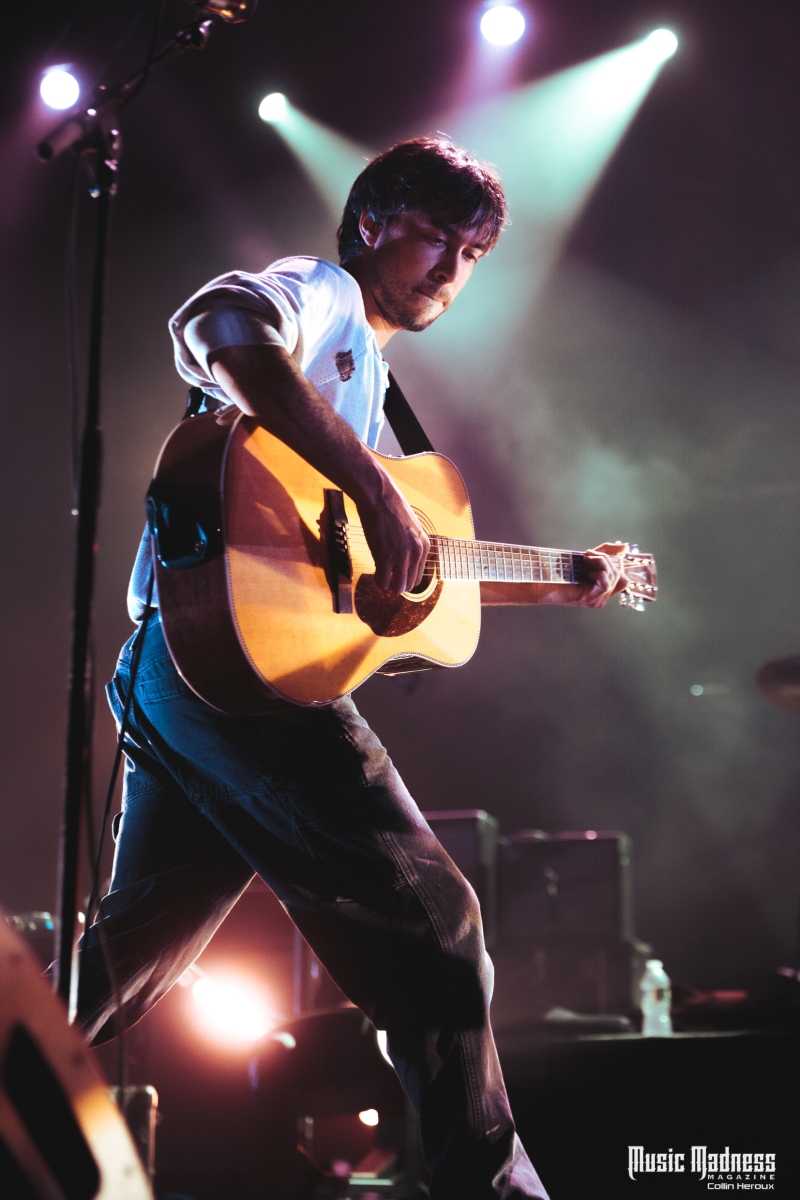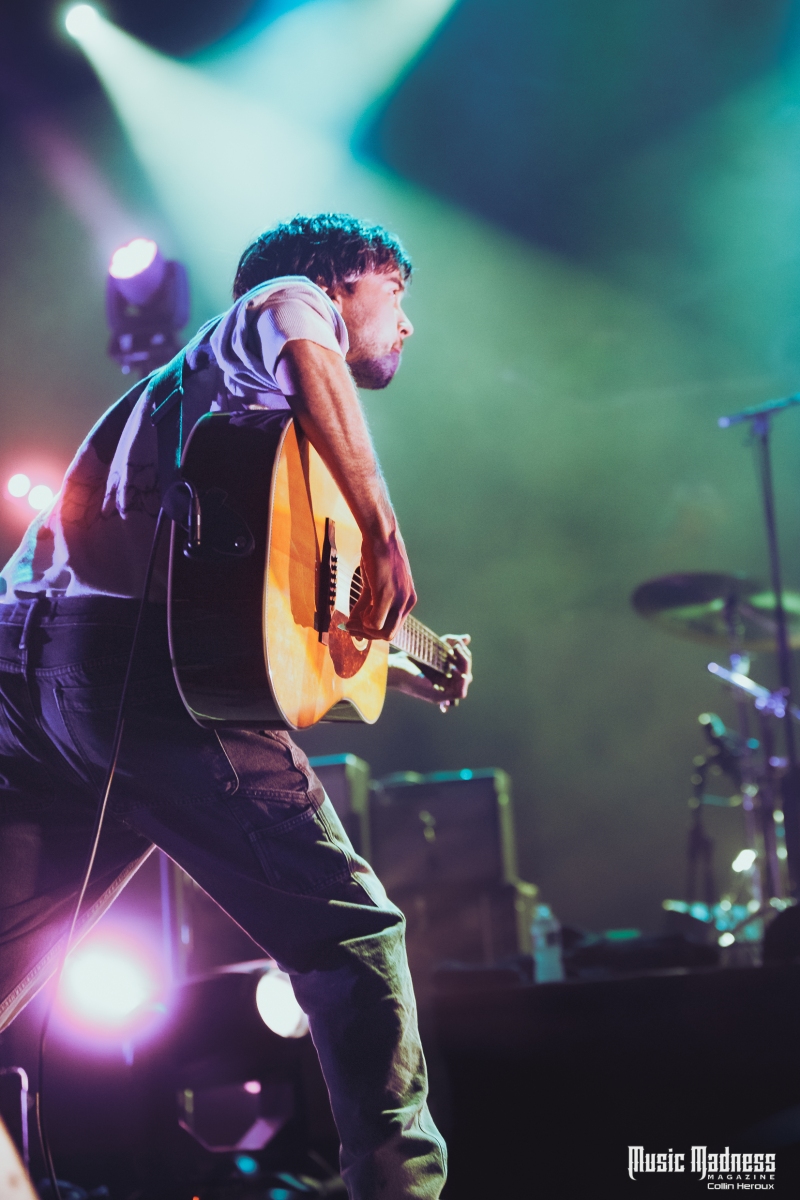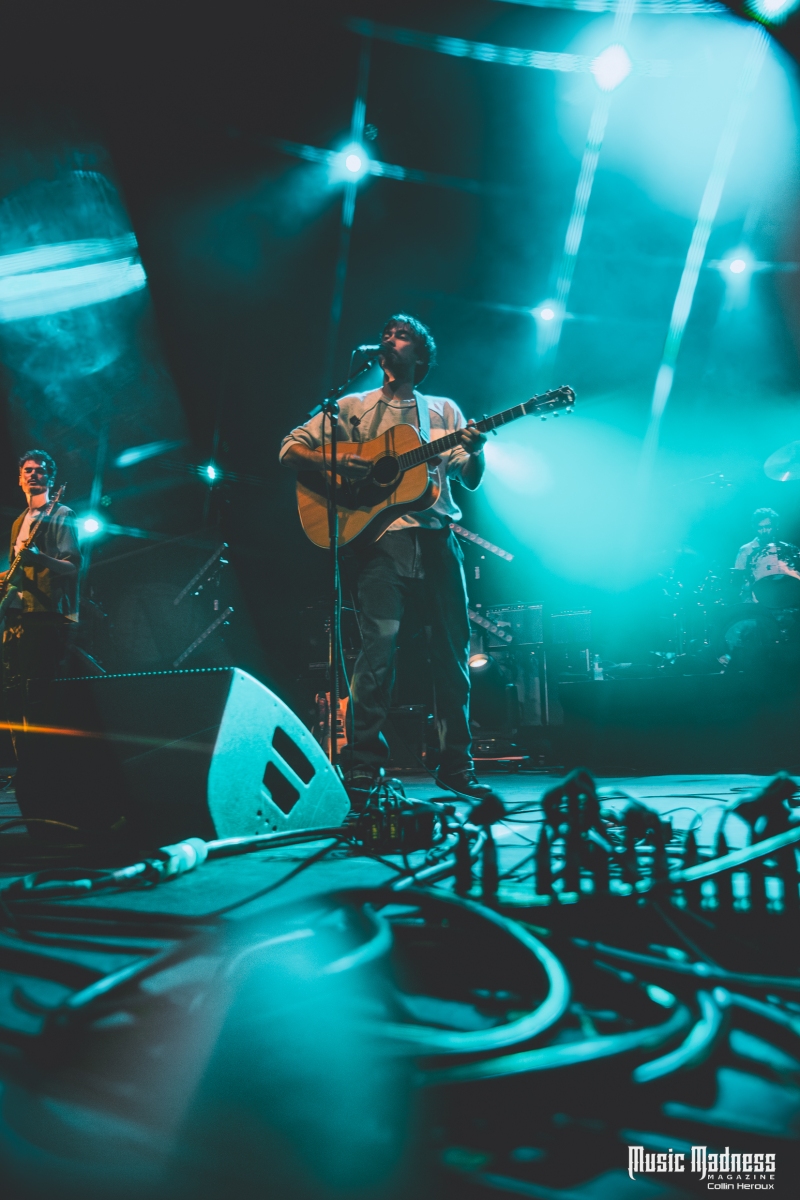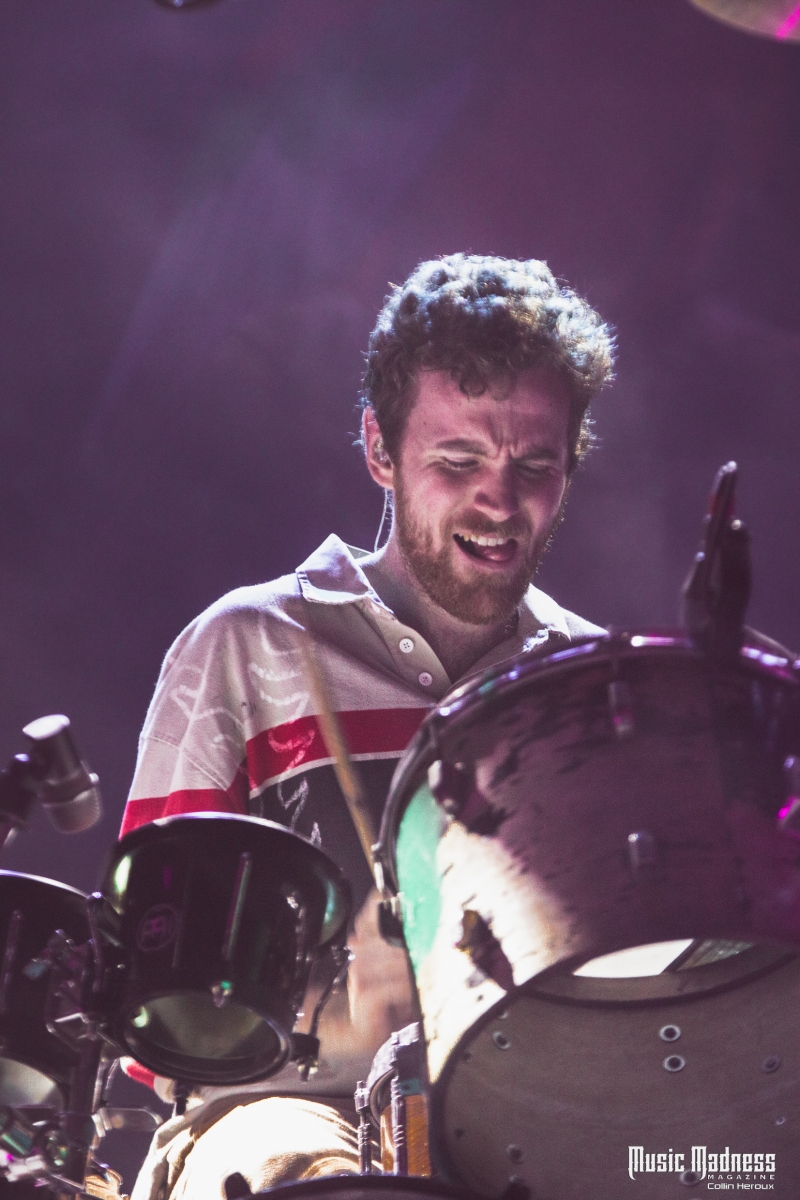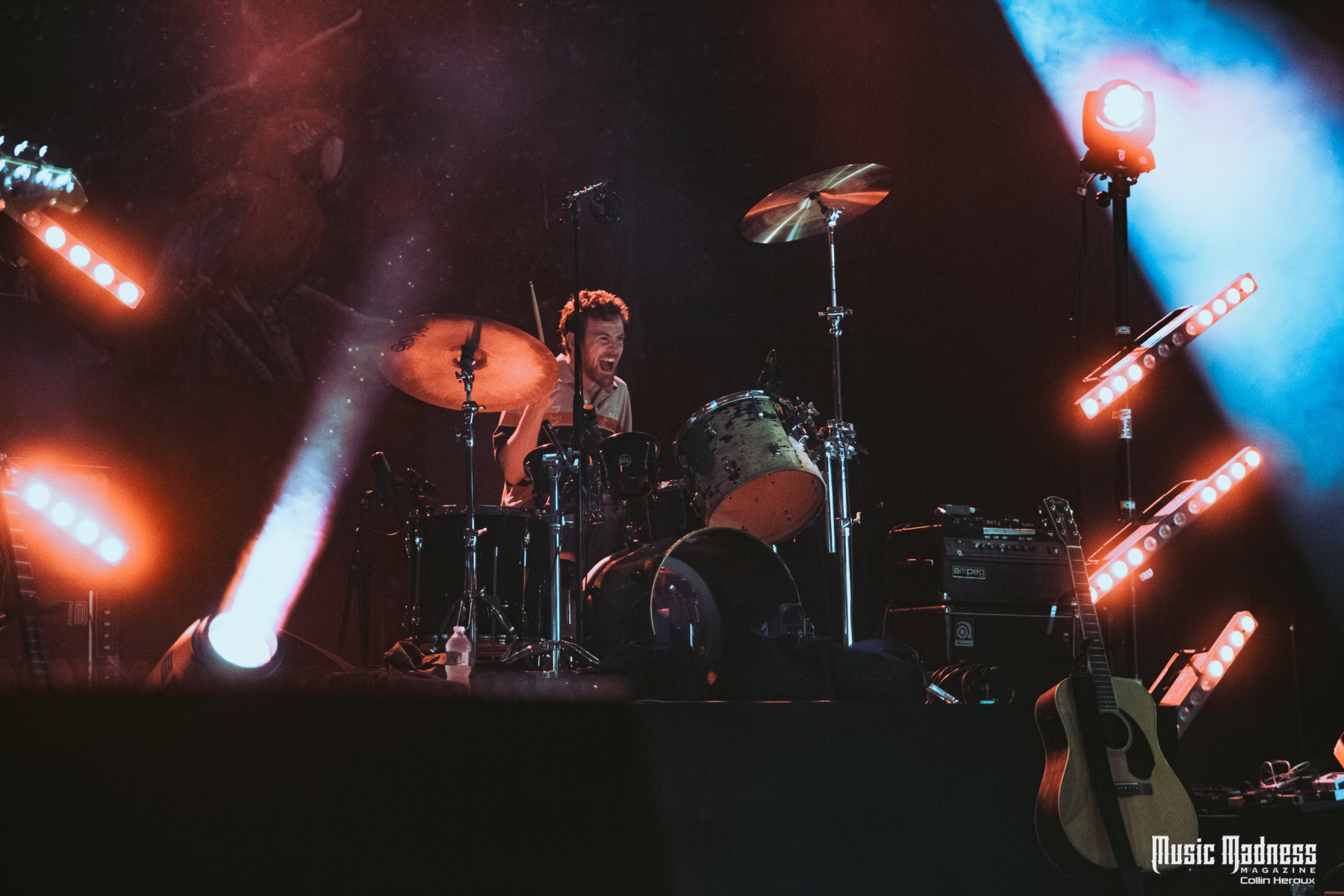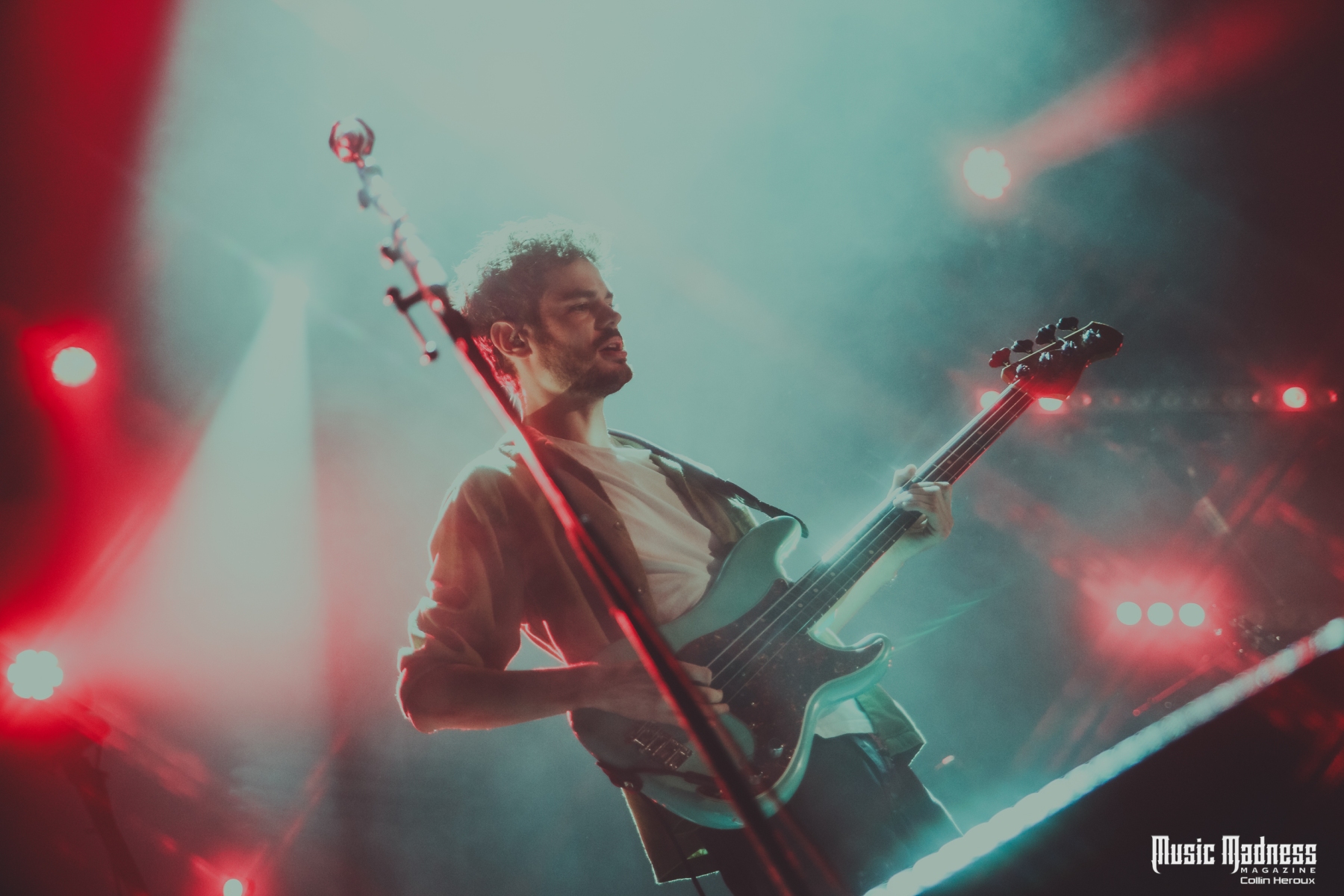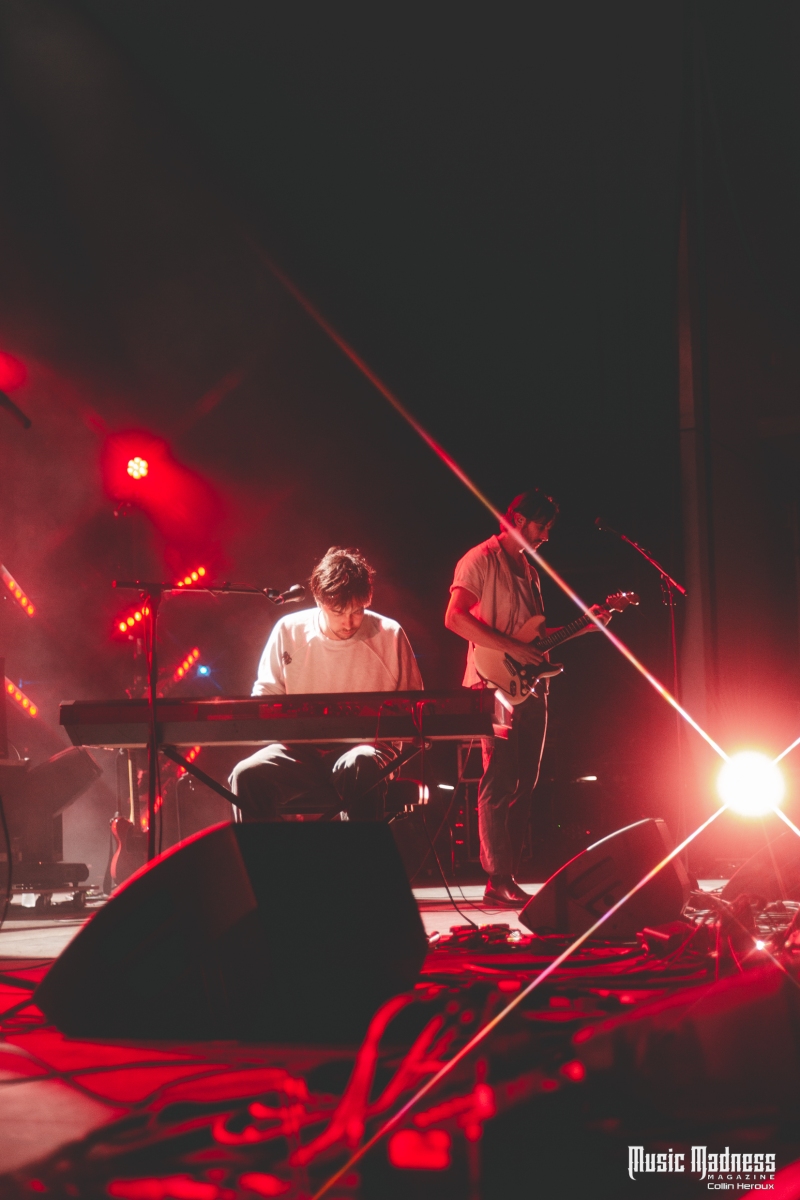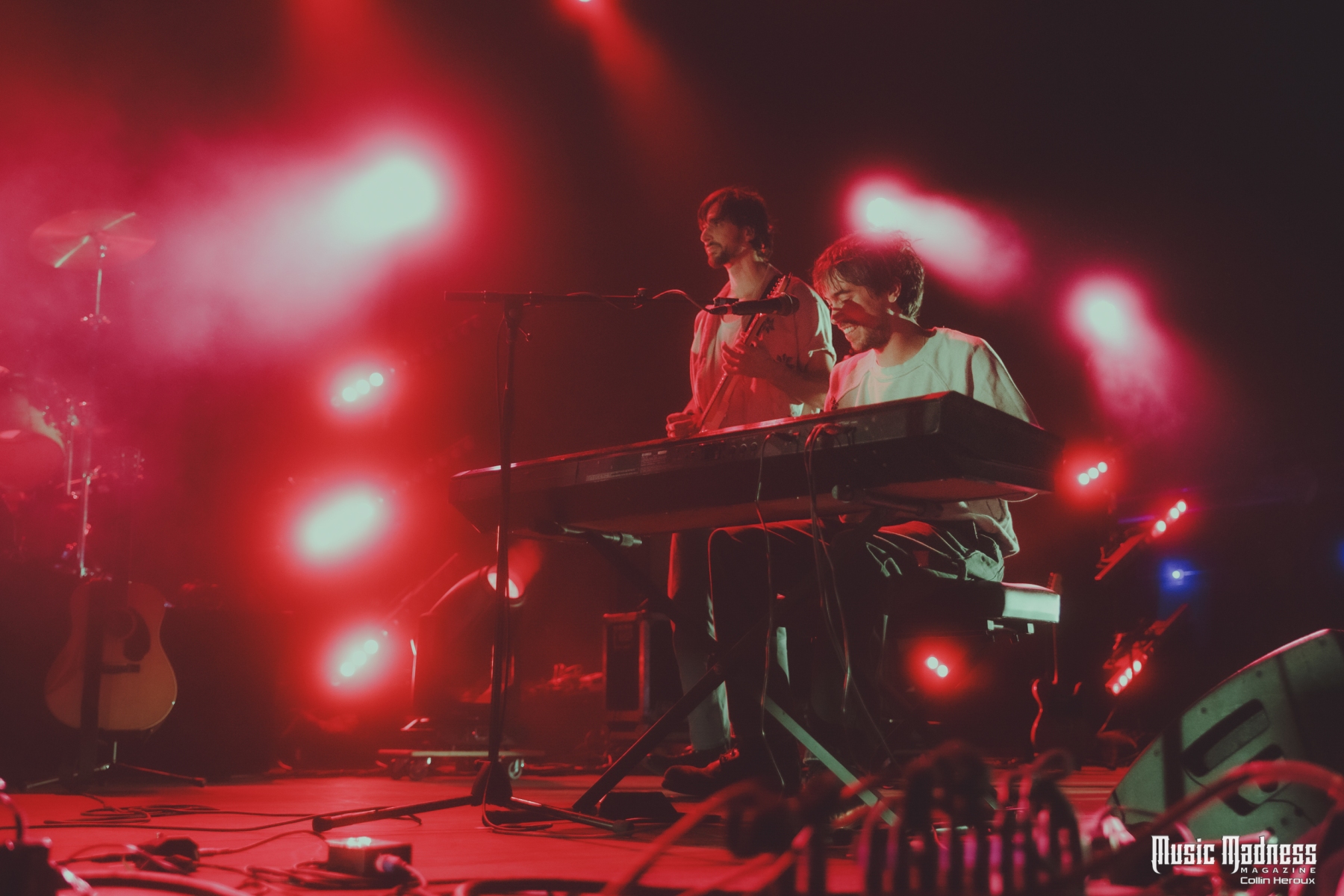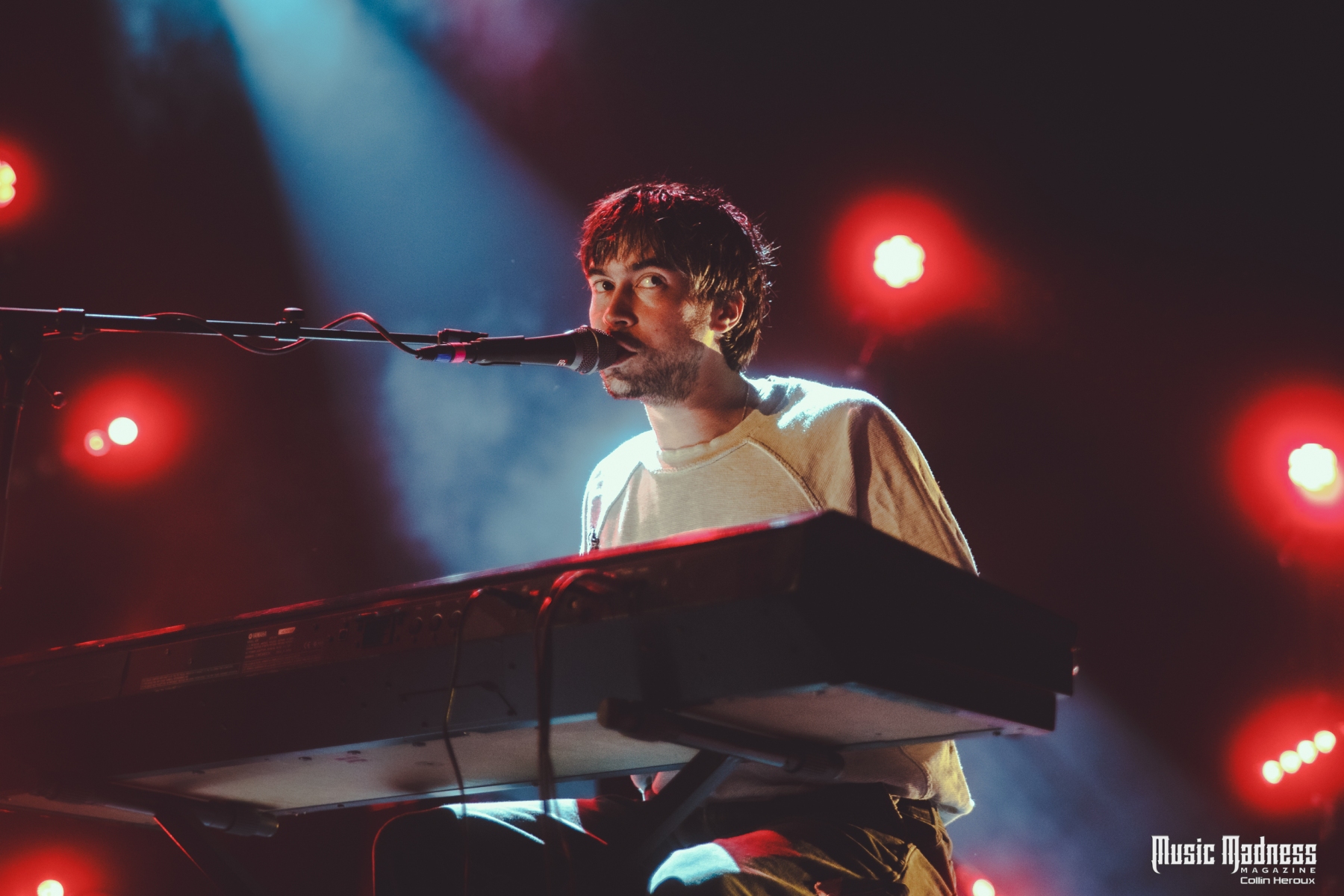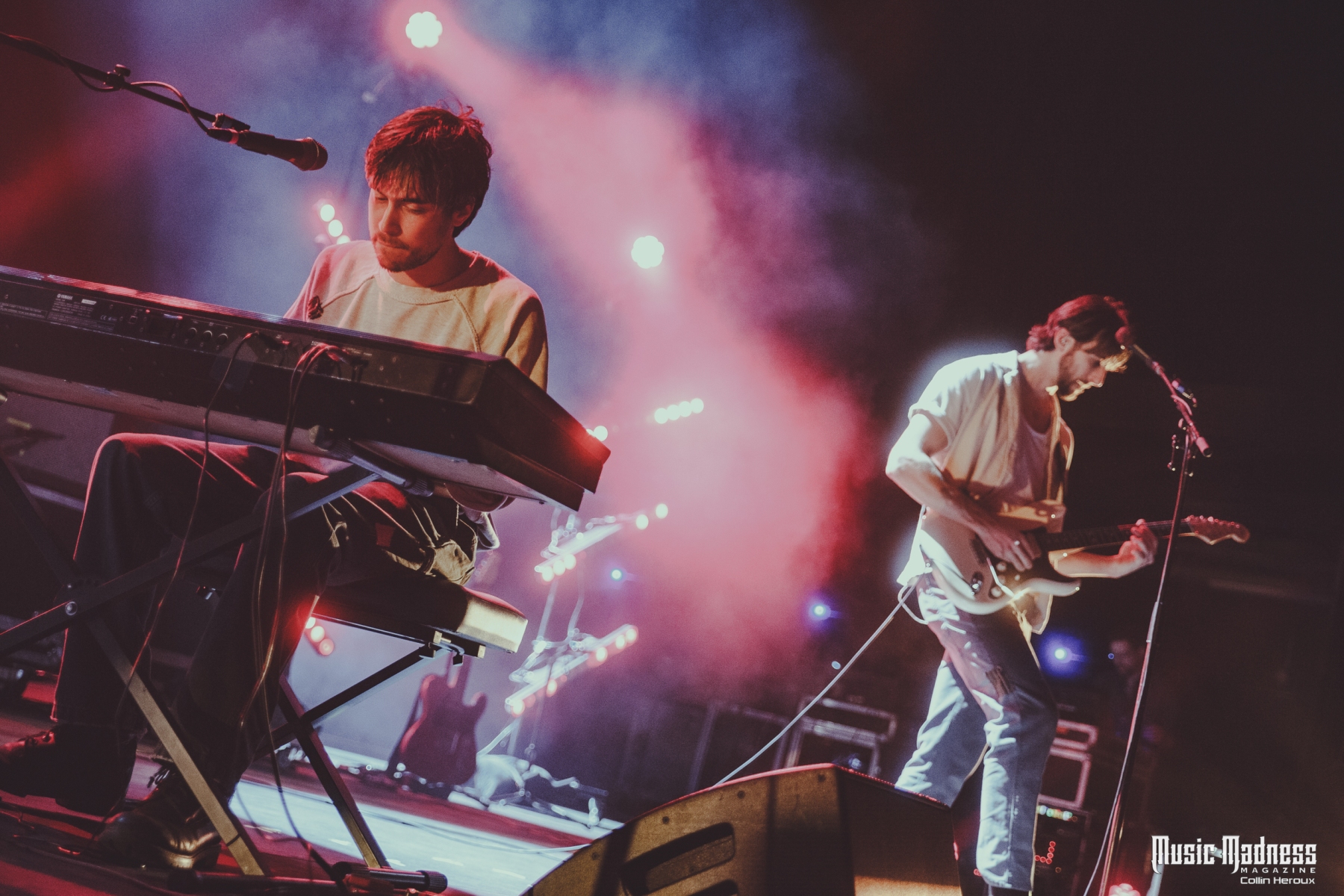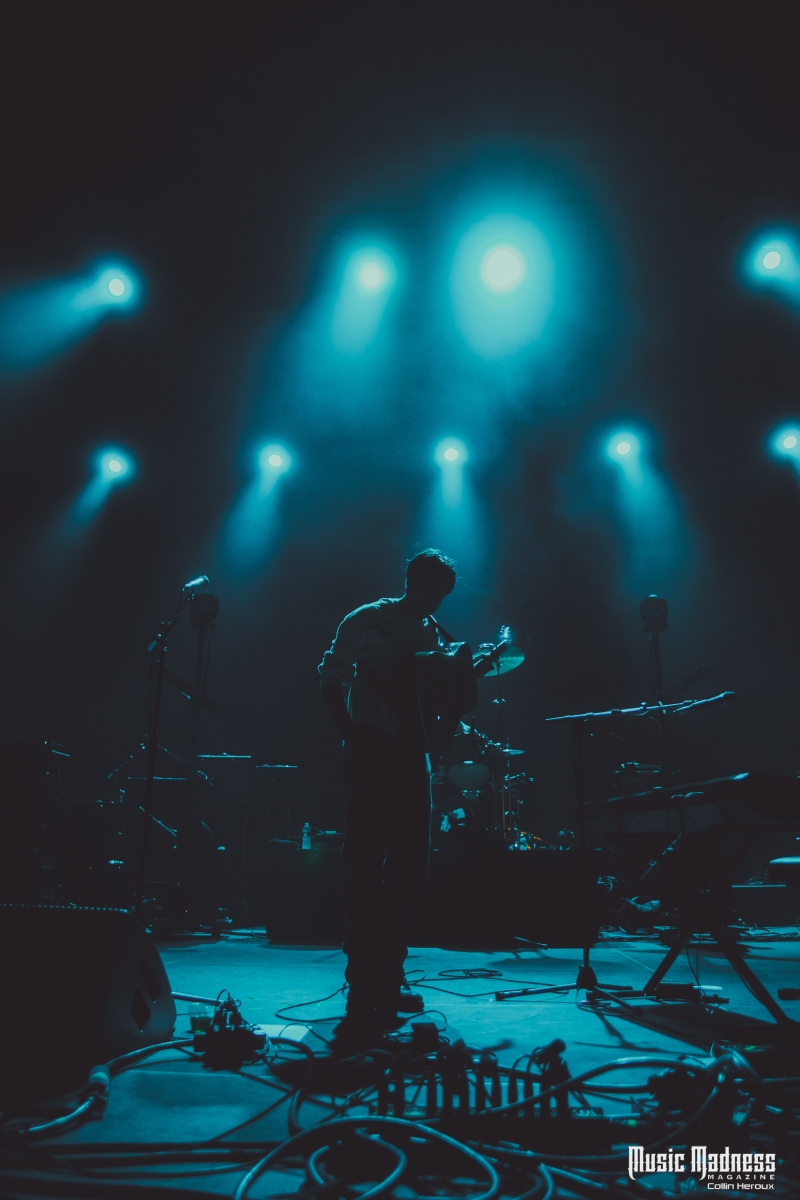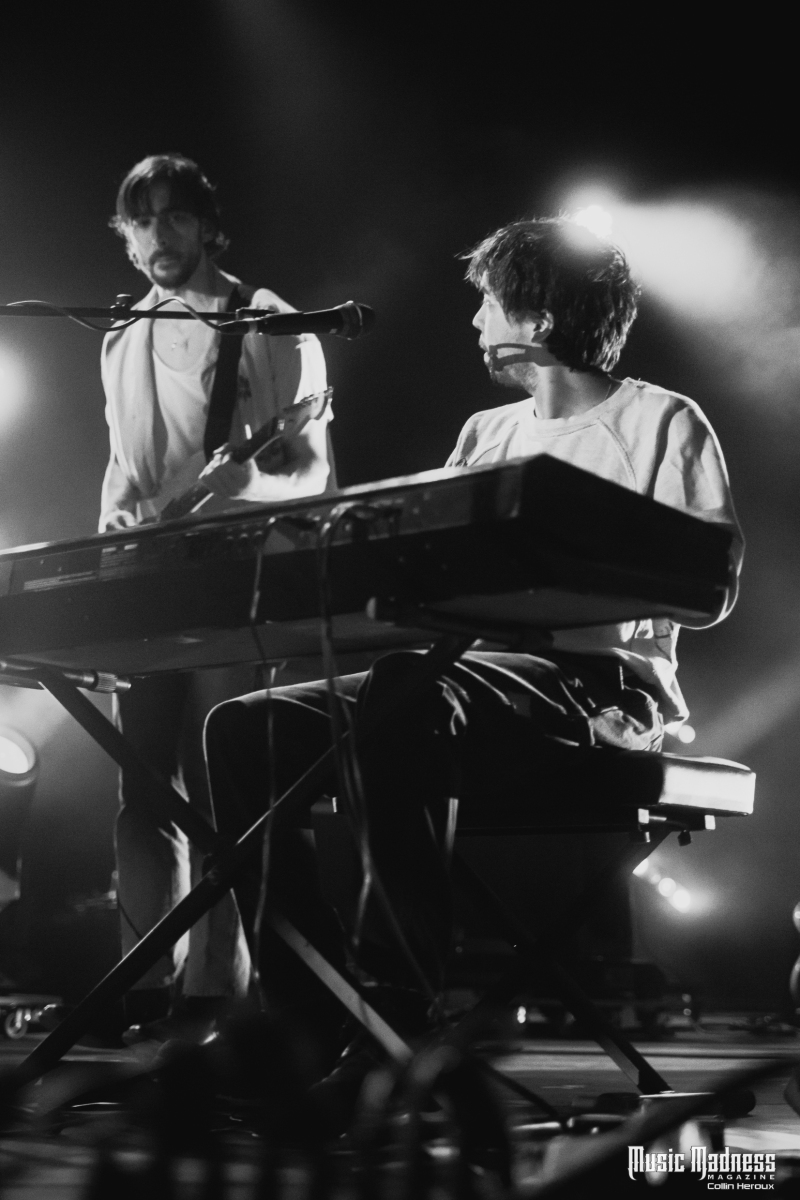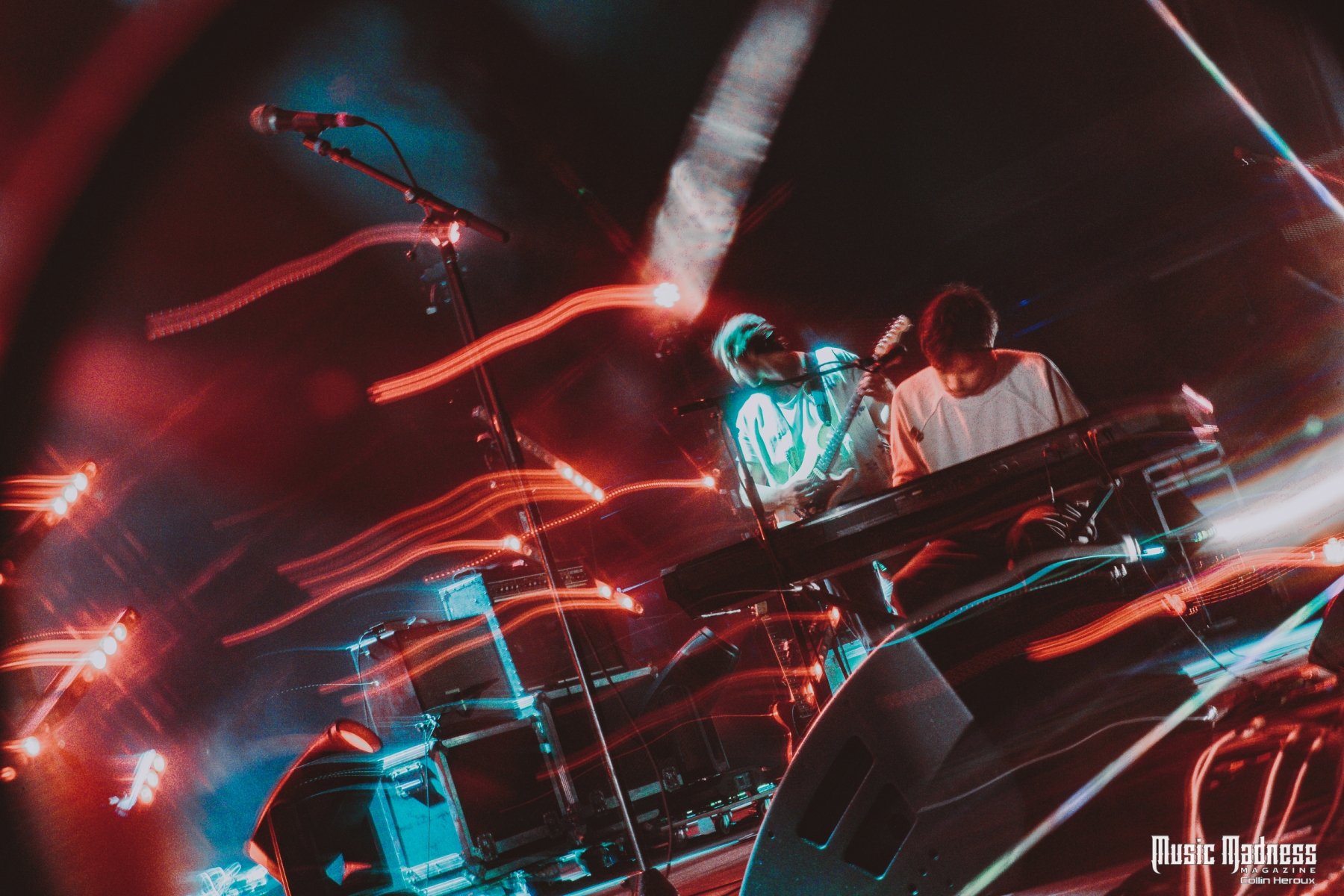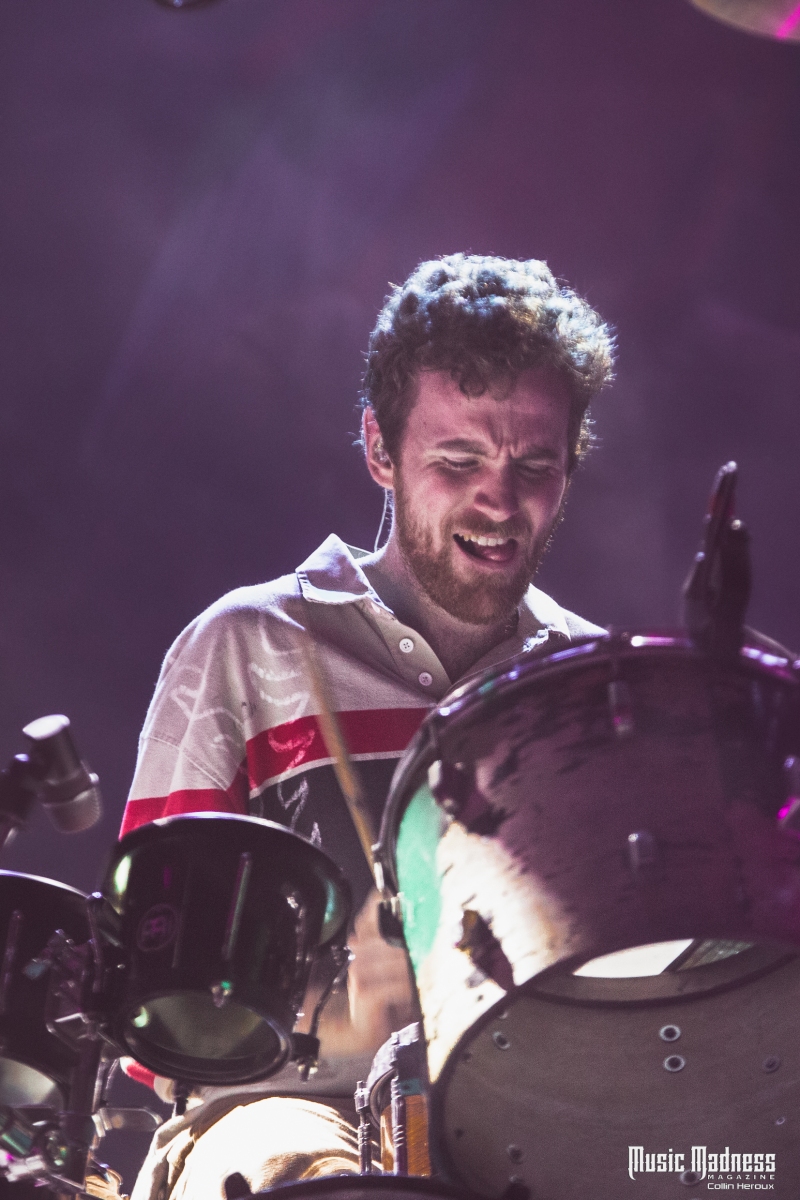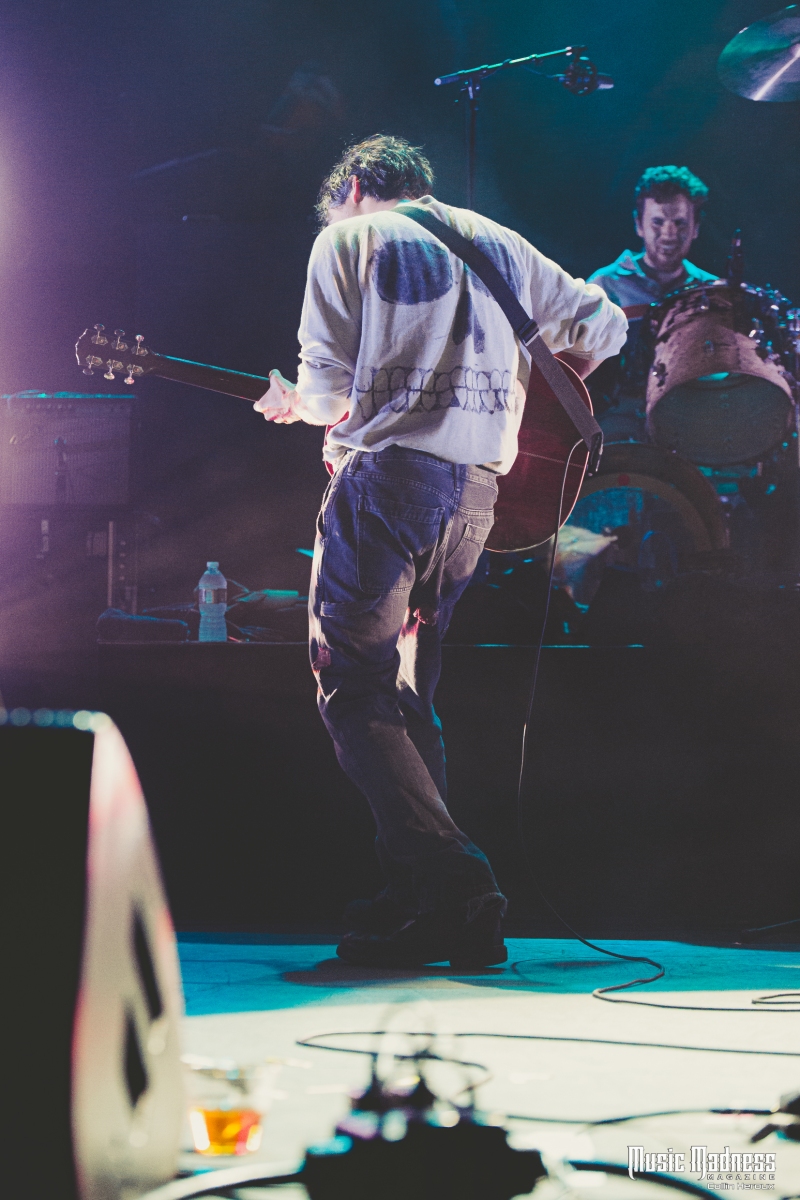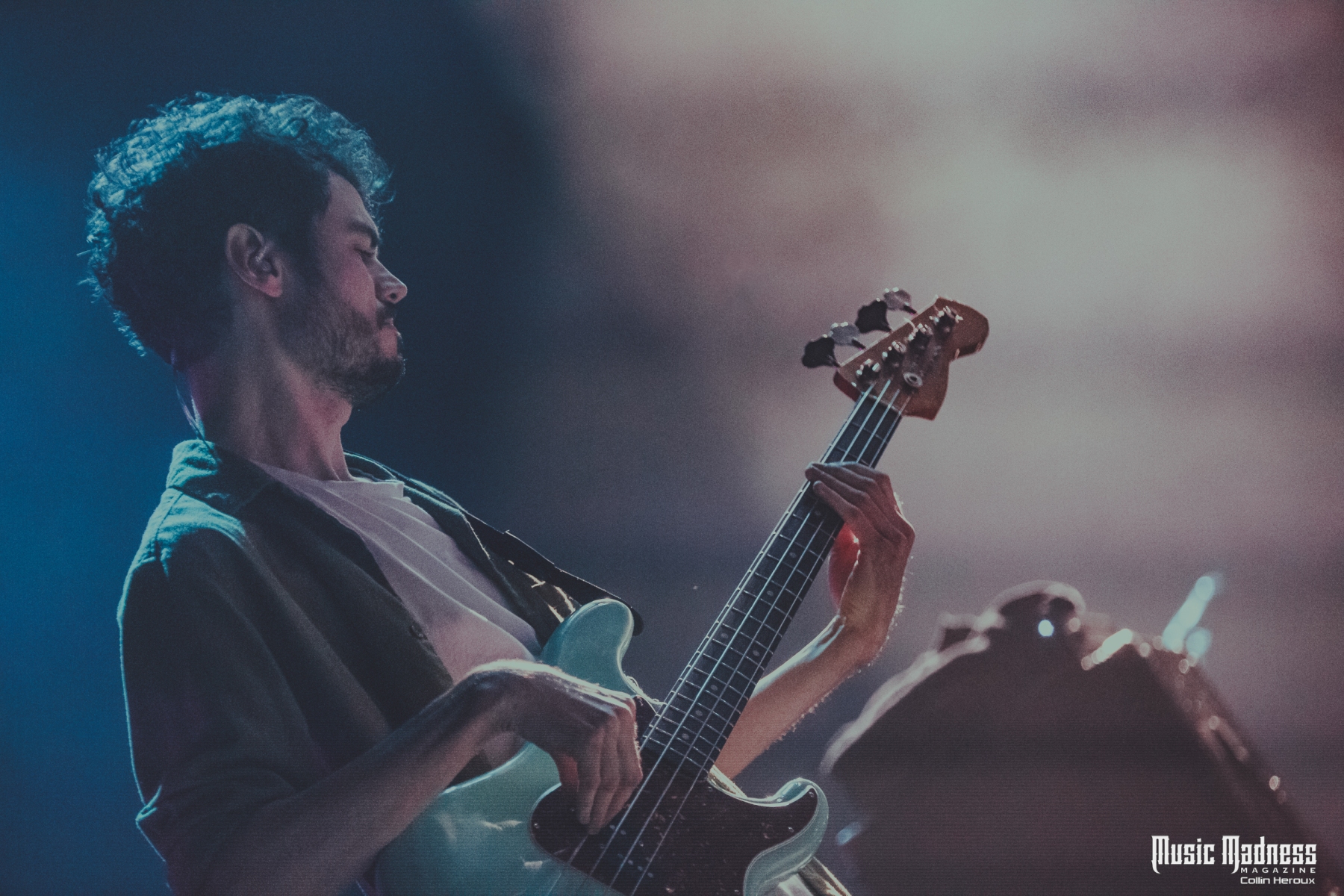
Alex G has always expertly plumbed the common depths of human emotion, even as his music tends so frequently toward the oblique. Historically shrouded in lo-fi production, as hesitant to offer clarity on its sonics as its true scope and meaning, he nonetheless has attracted a deeply devoted audience and proves to pair well with just about any sort of touring act. Alex G arrives in Boston’s seaport district on a drizzling evening as part of a tour with Alvvays, his compositions part of a night that ranges across the whole spectrum of artsy, weird pop music. Both bands are fresh off the critical successes of their late-2022 albums, in Alvvays’ case Blue Rev and, for Alex G, God Save the Animals. They’re accompanied by Tanukichan, who collide the classic power trio dynamic with the steadily-escalating fierceness of shoegaze, singer, and bassist Hannah van Loon’s instrument often sounding as if it were powerful enough to bore into the earth below.
The rain has abated a bit by the time Alex Giannascoli and his bandmates appear. The venue is shielded from the bulk of the elements by a massive tent, but from the harbor comes a breeze that pulls a slight mist across the stage, ruffling through the hair of performers and audience alike. The set begins with a collection of songs both from GStA and his previous record, House of Sugar. Whether on piano, guitar or with just a microphone, Giannascoli’s entire body goes into the performance, often locking into a lunging pattern in time with bassist John Heywood and especially Tom Kelly on drums. But the arrival of the fifth piece of the night, ‘After Ur Gone’, an older track, highlights something noteworthy about the performance. This is almost certainly the largest venue Giannascoli and band have played in the Boston area – last time they booked a three-night residency at the Paradise Rock Club – and the prospect of hearing Giannascoli’s earlier songs that were birthed in such raw conditions at a five-thousand-capacity, open-air venue is cause for contemplation, not just on the laudable growth of the band’s profile, but also how Alex G’s older works both retain their power in this large setting, and are now contextualized in light of what has followed.
The night cycles through different time periods in Giannascoli’s discography, including a noisy and chaotic midsection with Rocket’s ‘Brick’ and ‘Horse’ leading into the unsettling whispers of ‘Blessing’, the microphone seemingly situated with effects to respond in vastly different ways to different decibel levels. But for all its left turns (including hyperpop), as we covered here last year God Save the Animals is not only the first Alex G album to wield the tools of a full-fledged recording studio, it also offered some more plainspoken insight on where Giannascoli finds himself in life, thinking openly about the prospect of family life and the future of his work.
The crowd’s biggest reaction arrives late in the set with a duo of songs from the much-beloved Trick, released in 2012. It dominates Alex G’s most-played song lists on DSPs, seemingly the inflection point at which he started to pick up that fervent following. Trick presents an interesting connection to GStA, as the former contains a track itself called ‘Animals’. It’s one of the many points in the record, and across his work as a whole, where Giannascoli finds commonality with something more simple – much of his works come across with an almost childlike quality in the way plain words and phrases touch upon deeper truths. But sometimes, as on ‘Mary’, whose volume gives way to quiet in its crushing end couplet, these statements still bear immense sadness even for their lack of complexity, different snapshots ranging from boyhood to adolescence. The path out of childhood is one outlined by a constant fight against the cynicism and acrimony that creep in for every one of us, just to different degrees. But ten years after Trick, ‘No Bitterness’ finds Alex G declaring: “My teacher is a child, with a big smile, no bitterness” – he seems to have found renewal by learning from someone who exists in a microcosm before all that, something that humans are largely doomed to forget for themselves and need to rediscover elsewhere. His maxim of “animals, not people” seems to perhaps no longer hold true. The night ends fittingly with a triumphant guitar solo in ‘Forgive’ from Sam Acchione, who thanks the crew before the band depart; God Save the Animals is ultimately a hopeful album, one that finds Giannascoli emerging in a way he has not yet done before.
Photos and Review by Collin Heroux

